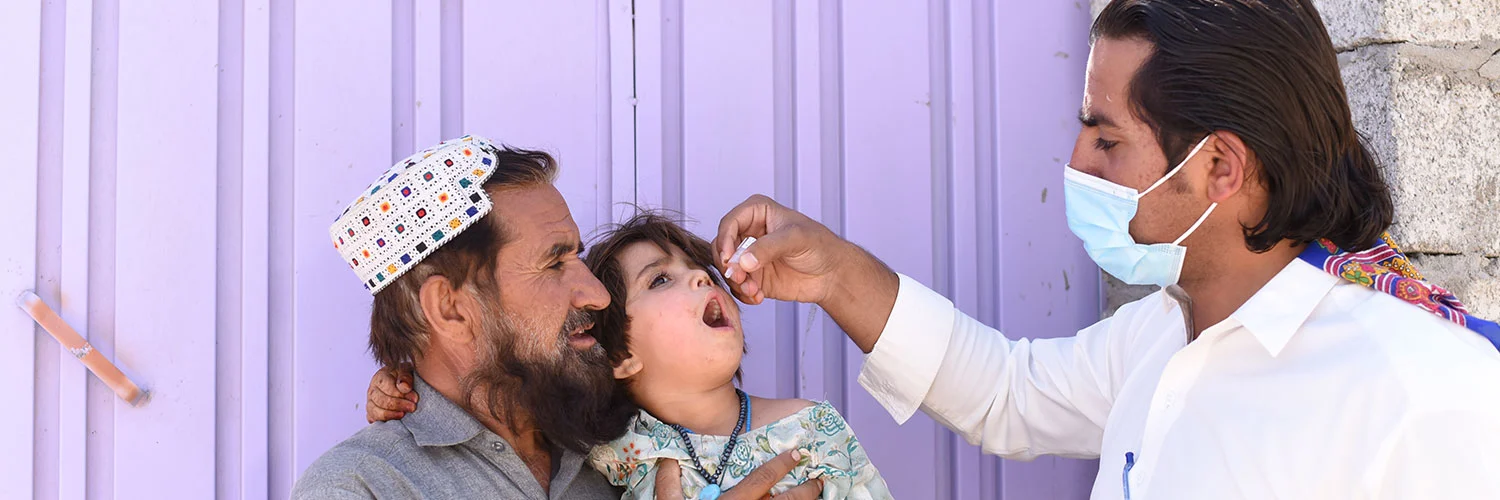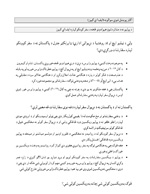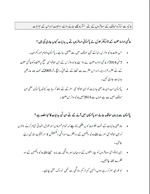Comprehensive and detailed answers to the most frequently asked questions on the polio virus, polio eradication campaigns, programme activities, the polio vaccine, Islamic guidance on polio vaccination, and the need to vaccinate while travelling.
- The poliovirus is currently spreading from three countries of the world: Pakistan, Syria and Cameroon.
- On 5 May 2014, WHO declared the international spread of wild poliovirus a Public Health Emergency of International Concern and issued a set of Temporary Recommendations under the IHR (2005) to address the emergency.
- As one of the countries from where the virus has spread in 2014, Pakistan is now implementing the Temporary Recommendations for international travel.
- Under the Temporary Recommendations, the government should ensure that all residents and long-term visitors receive two drops of polio vaccine, and a certificate of their vaccination status, prior to international travel.
- International travellers should receive two drops of polio vaccine between four weeks and 12 months before departure.
- Those undertaking urgent travel should receive a vaccine dose at least by the time of departure.
- Polio vaccination recommendations for travellers apply to both adults and children. Older individuals can play an important role in the international spread of poliovirus, as they can excrete wild poliovirus even if already vaccinated.
- All travellers, regardless of age, should receive the polio vaccine. Two drops of the oral polio vaccine (OPV) is the most effective way to avoid spread of the virus.
- Pregnant women should also be vaccinated as both OPV andinactivated polio vaccine (IPV) are safe for pregnant women and their unborn children.
- OPV should not be given to patients whose immune system is severely depressed because of known underlying diseases or medications. Patients with depressed immune function can be safely vaccinated with IPV.
- Pakistan will require proof of vaccination on departure. Although there are no Temporary Recommendations for polio-free receiving countries, some countries already have polio vaccination requirements for entry (e.g. the Kingdom of Saudi Arabia, India). Other countries may decide to put additional measures in place to prevent the spread of poliovirus.
- All Pakistani residents, and visitors who have been staying in Pakistan for more than four weeks, will have to receive a dose of either OPVor IPV between four weeks and 12 months prior to international travel.
- Please note that some countries have specific polio vaccination requirements for travellers from infected countries. Other countries may separately decide to put additional measures in place to prevent the spread of poliovirus. Please check with the consulate of the country to which you are travelling, whether vaccination is required prior to a visa application. Prospective travellers from Pakistan should have their vaccination status recorded on a government vaccination card, or in the WHO/IHR “yellow booklet” International Certificate of Vaccination or Prophylaxis, available to download at http://www.who.int/ihr/ports_airports/icvp/en/
- Travellers from polio-free countries who are planning to travel to and stay in Pakistan for more than four weeks may wish to make arrangements to receive a dose of polio vaccine prior to planned travel. Proof of vaccination will be required when they seek to leave Pakistan to return home.
- In Pakistan, the two drops of polio vaccine and the certificate are available from the international vaccine counter at all major hospitals, EDO, Health offices and DHQ hospitals.The vaccine and certificate is provided free of cost.
- The vaccine and certificate is not available from private medical practitioners and clinics. Valid certification has to be made on the government vaccination card, or in the WHO/IHR “yellow booklet”.
- Patients requiring vaccination with IPV for medical reasons should contact the Ministry of National Health Services Regulation and Coordination through their attending clinician.
As per the temporary recommendation of the Executive committee under the International health regulations (IHR- 2005) on the international spread of poliovirus, Polio vaccination is required for all international travelers regardless of their age group,
- To stop the international spread of poliovirus from the infected countries
- With the continued transmission of the poliovirus between infected countries including Pakistan and Afghanistan from where polio is not eradicated, the focus is to ensure everyone crossing the international border and /or traveling abroad from these infected countries gets vaccinated as per IHR protocols.
- Unimmunized children/persons who are potentially exposed to wild poliovirus and have not been adequately immunized can spread the poliovirus to others.



